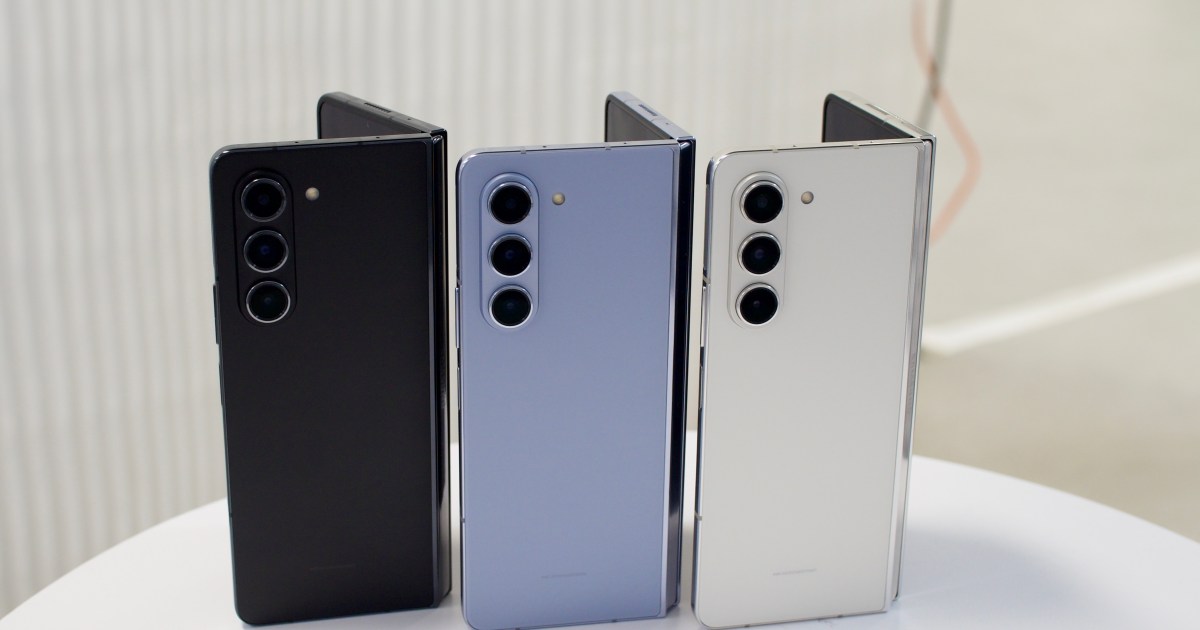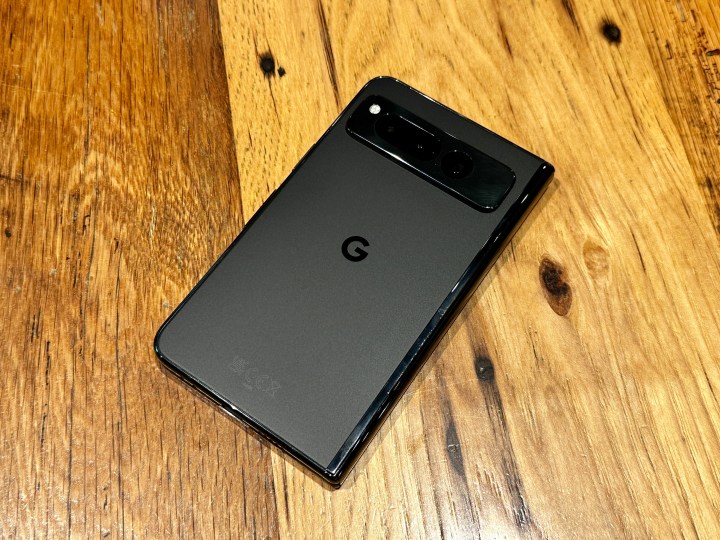
Samsung has had a jam-packed Galaxy Unpacked event in Seoul, South Korea. We now have three new tablets with the Galaxy Tab S9 series, two new Galaxy Watch 6 wearables, the compact but capable Galaxy Z Flip 5, and of course, the Galaxy Z Fold 5.
For a lot of people, the main star of the show is probably the Galaxy Z Fold 5. After all, it’s one of the more impressive devices that Samsung revealed at the event — and a follow-up to one of the best folding phones you can buy.
But for me, I’m not in love with Samsung’s fifth-generation foldable. I’ve been using the Google Pixel Fold for just about a month, and it’s been my first real foldable experience. After seeing what Samsung’s offering with the Fold 5 this year, I haven’t been convinced to switch over.
Here’s why I’ll be sticking with the Google Pixel Fold, at least for now.
The cover screen hasn’t changed
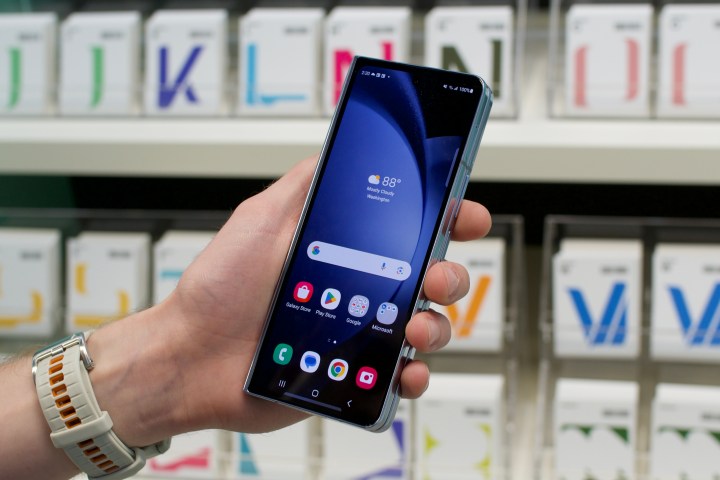
One of the biggest draws of the Google Pixel Fold for me was the cover screen. It’s 5.8 inches, so it looks and feels like a standard phone. In fact, it’s not unlike the iPhone X, which I thought was the perfect-sized phone. Even though the Pixel Fold is one of the heaviest phones I’ve used, I could still use it closed with one hand comfortably, which I always appreciate.
On the other hand, I never liked the Samsung Galaxy Z Fold 4 cover display, which is too tall and narrow with the 6.2-inch size, and Samsung has not changed that with the Galaxy Z Fold 5. This super narrow screen means a smaller, more cramped keyboard that I could never get used to, and it is harder for me to use one-handed as I have smaller, petite hands. (Reaching the top corners of the display with one hand is pretty much out of the question for me.)
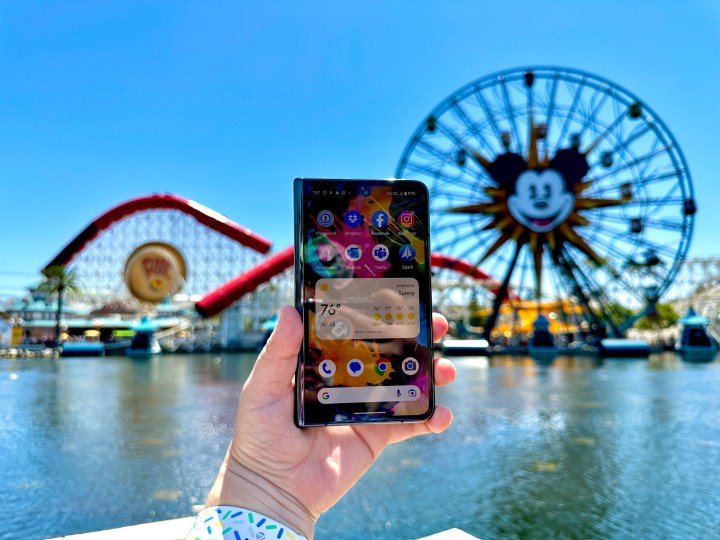
After my initial review of the Google Pixel Fold, I saw other people saying that it’s more akin to a digital Moleskine notebook, and then it clicked for me. The Pixel Fold’s size is just like those hardcover notebooks I used to love writing in, and it’s delightful.
The Pixel Fold is also a foldable that is better used when it’s closed due to the cover screen, but still works well opened up when you need that extra space (for reading or watching videos, for example). It feels like the Samsung Galaxy Z Fold 5 is the opposite of that — best used when it’s unfolded rather than closed with the cover display.
When I’m out and about, I prefer just using the cover display rather than having to open it up every time I want to use the device. It’s easy to do this on the Pixel Fold, but not with Samsung’s Galaxy Z Fold options.
I’m really not a fan of Samsung’s cameras

One of the big features I require from smartphones is good cameras. I pretty much only use smartphone cameras to take all my photos, as I don’t have a standalone camera. For the most part, smartphones do a good enough job for what I need.
Since I started at Digital Trends, I’ve had to try out many different smartphones for my job, and I’ve learned the little nuances between each brand and how photos tend to come out. For example, Apple seems to have ruined its exceptional photo quality with too much computational processing on my iPhone 14 Pro. Google’s Tensor chip also uses computational processes on your photos, but the end results are actually much better than what Apple produces, as everything looks more natural and realistic.
However, one of the things that I’ve noticed with all of the Samsung devices I’ve tried is the fact that it tends to make colors oversaturated, bright, and vibrant. Now, this doesn’t sound bad at first, but when you take a photo on a bright and sunny day with a Samsung device, those vivid colors can be a little too intense.
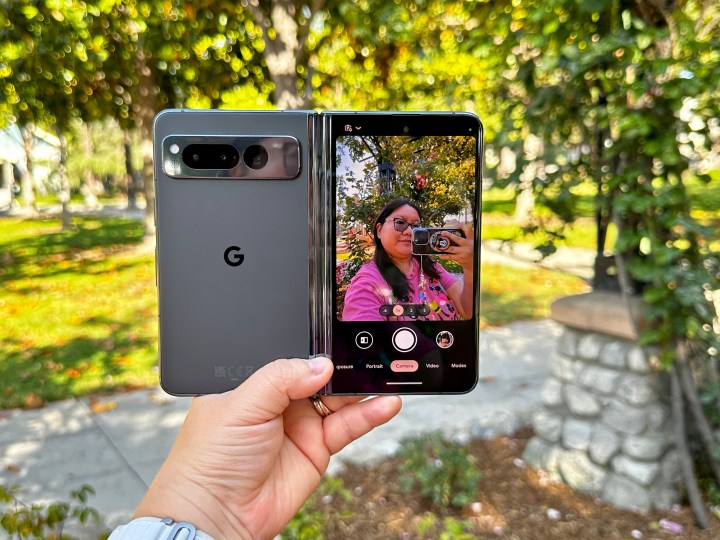
I recently did a camera comparison between the Google Pixel Fold and the Samsung Galaxy Z Fold 4. While the intense colors worked for some situations, I tend to prefer the more natural and realistic images that the Pixel Fold produced.
Since the Galaxy Z Fold 5 pretty much made no changes with the camera hardware, I’m going to assume that results with the Z Fold 5 will be similar to what I got with the previous generation. In other words, images that are too bright, too intense, and simply too vivid. I don’t need the colors in my photos to burn my retinas when I look at them — if I wanted that effect, I would do it myself in the editing process. I much prefer softer, less harsh colors.
It is possible that improvements to the image signal processor with the Snapdragon 8 Gen 2 chip will help the Galaxy Z Fold 5 in this regard. However, considering the images I got with the Galaxy S23 when I reviewed it earlier this year, I’m not holding my breath for any massive changes.
The Galaxy Z Fold 5 isn’t the upgrade for me

With the Google Pixel Fold as my first real foldable experience, I’m just a little underwhelmed with what Samsung is bringing to the table with the Galaxy Z Fold 5.
I didn’t like the tall and narrow shape of the Z Fold 4, so the Z Fold 5 doesn’t change my mind on that front. I’m also not a fan of Samsung’s over-tendency to burn my retinas with eye-popping color.
Overall, I really do see the Galaxy Z Fold 5 as a very iterative upgrade from its predecessor, as the biggest change is really just the hinge. I did find it a little annoying on the Z Fold 4 that it would have that wedge-shaped gap, so I’m glad to see that was fixed.
Of course, I have yet to actually experience the Galaxy Z Fold 5 for myself yet. Perhaps I’ll change my mind once I spend some time with it, but until then, I’ll stick with my Pixel Fold as my go-to foldable.
Editors’ Recommendations

